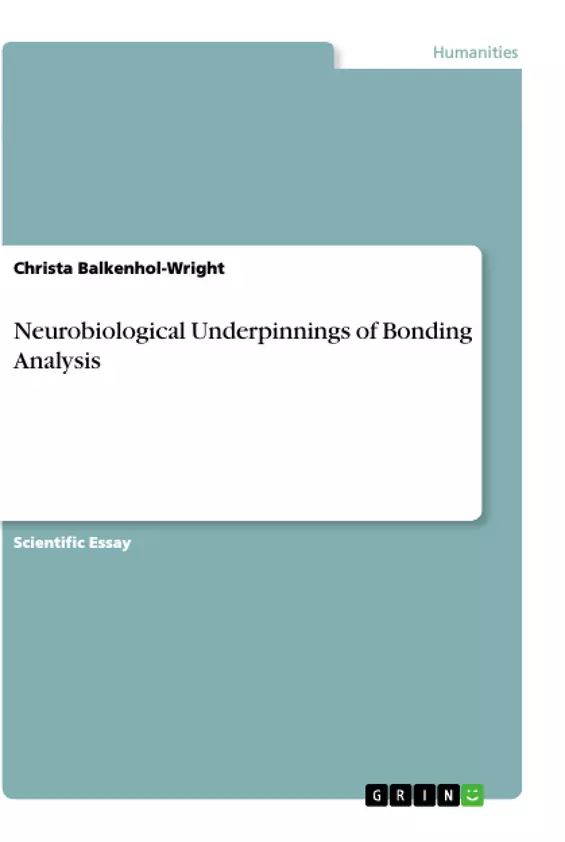This paper deals with the origins of bonding analysis and prenatal bonding, as well as the impact of maternal stress during pregnancy and further prenatal traumas.
In the late 1980s, an eminent Hungarian psychotherapist, the late Dr. Jenö Raffai, developed a revolutionary new method he later called Bonding Analysis with which he accompanied pregnant women throughout their pregnancy, enabling the mothers-to-be to get into mental and emotional contact with their unborn babies. The primary objectives were on the one hand to satisfy the baby’s primal needs for bonding—that is to say, for feeling accepted, secure, protected, and most of all loved—and on the other hand to enhance the future mother’s bonding capacity.
Inhaltsverzeichnis (Table of Contents)
- The Origins of Bonding Analysis
- Prenatal Bonding
- Prenatal Bonding: Its Importance, Functioning, and Neurobiological Processes
- The Impact of Maternal Stress During Pregnancy
- The Impact of Prenatal Influences: A Case History
- Further Prenatal Traumas
- Neurobiological Underpinnings of Bonding Analysis
Zielsetzung und Themenschwerpunkte (Objectives and Key Themes)
This text explores the concept of prenatal bonding, a revolutionary method developed by Dr. Jenö Raffai in the late 1980s. The primary objective is to understand the importance of bonding between mother and child before birth and its impact on the developing brain.
- The origins and development of Bonding Analysis
- The significance of prenatal bonding for fetal development
- The role of maternal stress and its implications for the developing brain
- The neurobiological processes and mechanisms involved in prenatal bonding
- The impact of bonding on the future emotional and social development of the child
Zusammenfassung der Kapitel (Chapter Summaries)
The text begins by outlining the origins of Bonding Analysis, stemming from Dr. Raffai's work with a psychotic youth whose issues were traced back to his prenatal experience. The text then delves into the concept of prenatal bonding, highlighting its importance in establishing a secure and healthy foundation for the baby's development. The chapter on "Prenatal Bonding: Its Importance, Functioning, and Neurobiological Processes" explores the profound impact of prenatal bonding on the development of the fetal brain, particularly the limbic system and brain stem.
The text concludes by examining the impact of maternal stress on the developing brain. It discusses how stress can lead to a range of negative consequences, including impaired immune function and a sense of coping disability in the child. The text emphasizes the importance of addressing maternal stress through bonding analysis sessions, aiming to relieve tension and provide positive impulses for the baby's brain.
Schlüsselwörter (Keywords)
The text primarily focuses on the concepts of prenatal bonding, Bonding Analysis, fetal brain development, maternal stress, and neurobiological underpinnings of early bonding. It delves into the relationship between the mother's mental and emotional states during pregnancy and their impact on the baby's development, highlighting the importance of a secure and supportive bonding environment for the child.
Frequently Asked Questions
What is Bonding Analysis?
Bonding Analysis is a method developed by Dr. Jenö Raffai that enables pregnant women to establish mental and emotional contact with their unborn babies.
Why is prenatal bonding important?
It satisfies the baby's primal needs for security and love, forming a healthy foundation for the child's future emotional and social development.
How does maternal stress affect the fetus?
Stress can negatively impact the developing fetal brain, particularly the limbic system, potentially leading to impaired immune function or coping disabilities.
What are the neurobiological underpinnings of this method?
The method focuses on how the mother's emotional state influences neurobiological processes in the baby's brain stem and limbic system during pregnancy.
What are the primary goals of Bonding Analysis?
The main goals are to enhance the mother's bonding capacity and to ensure the unborn baby feels accepted, protected, and loved.
- Citation du texte
- Christa Balkenhol-Wright (Auteur), 2018, Neurobiological Underpinnings of Bonding Analysis, Munich, GRIN Verlag, https://www.grin.com/document/922723



